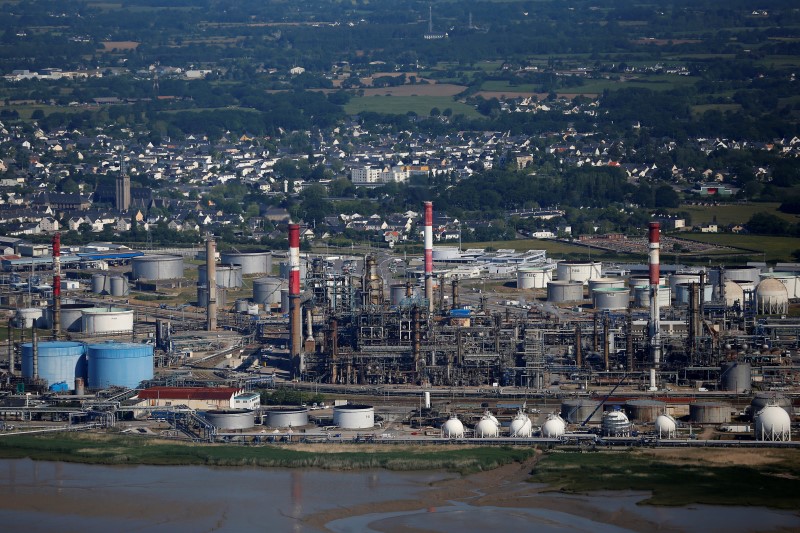Investing.com - WTI crude oil prices settled lower Friday as U.S. oil rigs rose for the first time in three weeks, raising fears domestic output may renew its expansion.
On the New York Mercantile Exchange crude futures for September delivery fell 1.3% to settle at $68.69 a barrel, while on London's Intercontinental Exchange, Brent fell 0.28% to trade at $74.33 a barrel.
Oilfield services firm Baker Hughes reported on Friday that the number of U.S. oil drilling rigs in operation rose by 3 to 863.
That was the first rig count rise in three weeks, pointing to signs of U.S. output growth, which has remained flat for two weeks in row. U.S. output remains at record highs of 11 million barrels a day, the EIA said Wednesday.
"The data is likely seen to be as slightly negative for WTI oil prices as the oil rig count trend changed direction for the first time in three weeks," National Alliance said on Friday.
The subdued end to the week for oil prices comes as traders continued to weigh the efforts by major oil producers to avert a global supply shortage.
Russia could ramp up crude output by as much as 250,000 barrels a day in July following the recent decision by the OPEC, and non-OPEC members to ease curbs on restrictions, energy minister Alexander Novak said Friday.
"We [expect] that some 200,000-250,000 barrels a day, out of the 300,000 barrels a day cut under the production cut deal, will be restored [this month]," Novak said.
Crude oil prices rallied earlier in the week amid falling U.S. crude stockpiles and Saudi supply disruptions.
Saudi Arabia temporarily paused shipments through the Bab el-Mandeb strait, which joins the Red Sea to the Gulf of Aden, after two of its oil tankers were reportedly attacked by Houthi rebels.
The disruptions in the Middle East come as market participants continue to bet on further disruptions in oil flows underpinning oil prices.
"The potential for further disruptions remains high in Libya, Venezuela and Nigeria with last week seeing new disruptions in Norway and Iraq, and Saudi has little incentive to let inventories rise," Goldman Sachs said in a note to clients Thursday.
